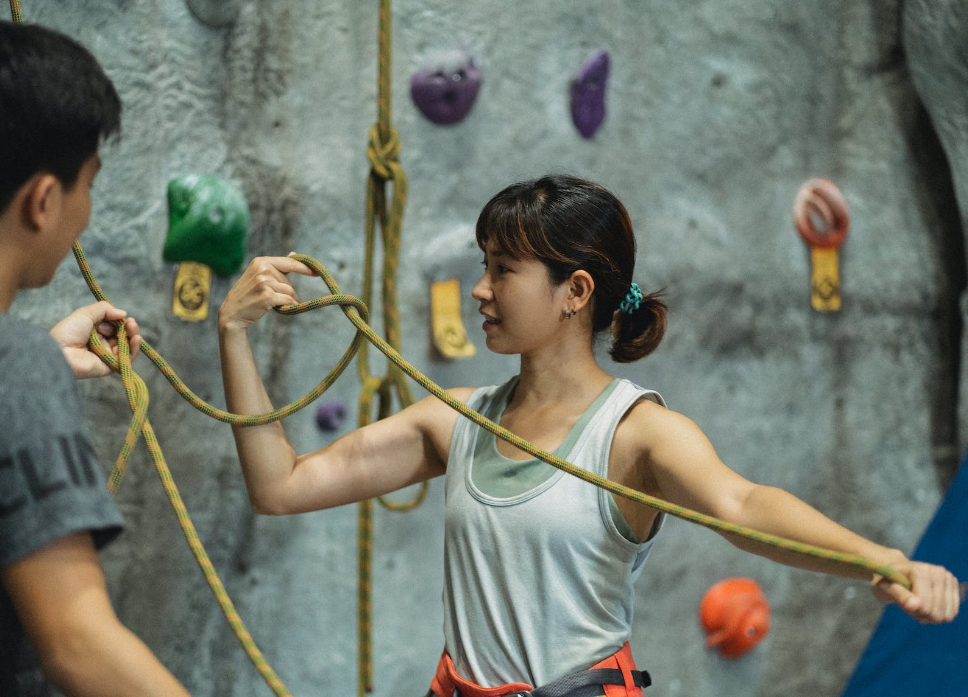Self Talk For Athletes
Learn about Self Talk For Athletes to help them develop confidence in their abilities.

Selfpause Affirmation App
Download the app to get 1,000’s of affirmation meditations and everything you need to write, record and listen to your own.
Self-talk can be a valuable tool for athletes to improve their performance. In addition to addressing the emotional side of the game, athletes can also use imagery to help them remember their self-talk during certain events. Additionally, athletes can keep a logbook of their self-talk during the day. This can be especially helpful if they have poor imagery or a muddled memory. It can also help them develop confidence in their abilities. A coach or mental performance specialist can also provide guidance on ways to improve self-talk.
System 2 self-talk

Self-talk can be a powerful tool for athletes, but it can be harmful if it’s not used in moderation. Athletes who express their negative thoughts excessively can cause cognitive resource drain and a decrease in performance. Athletes who use System 2 self-talk should be mindful of this fact and should limit their use of negative thoughts in the course of the competition.
In an effort to improve athletes’ ST, a study was conducted in which junior sub-elite athletes reported their ST words and phrases before and after a self-talk intervention. The researchers also assessed how goal-directed the ST was, using interviews and group discussions. Overall, the results showed that most athletes had emotionally driven ST before the intervention, but after focusing on specific mechanisms, athletes showed increased goal-directed System 2 ST.
In order to further develop this research, a sport-specific model was developed. This model provides a conceptual framework for the study of self-talk for athletes and highlights individual differences and cultural influences. In addition to addressing individual differences, this model outlines the basic principles of effective self-talk and provides the foundation for future development.
This approach also has the potential to reveal neuronal differences in self-talk. Unlike traditional self-talk tests, DES allows researchers to see a person’s self-talk at both the neuronal and experiential levels. The DES method can also be used to validate self-talk questionnaires, which currently have adequate reliability but have not been validated in a sport setting.
Goal-directed self-talk

The development of goal-directed self-talk is a necessary skill for athletes. It is important to understand how to use it to achieve a particular outcome, whether that’s winning the next race or simply avoiding injury during a race. Athletes can also use this technique to help them deal with situations when they are unable to seek help from others. It is important to know how to use it effectively and when to use it.
Self-talk functions are influenced by cognitive, motivational, and affective mechanisms. The cognitive mechanisms involved in self-talk include attention control, processing information, and attentional foci. When used during a performance, athletes can use goal-directed self-talk to elevate their performance and focus attention on what’s most important.
During an event, athletes should use goal-directed self-talk to help them stay focused and motivated during a competition. Positive self-talk reinforces the ability to do a task, while negative self-talk can cause negative emotional effects. The athletes should also avoid negative self-talk, as it can appear controlling and pressurizing. However, when using positive self-talk to achieve a goal, athletes should focus on the ability to change a situation.
While a coach is a key person in athletes’ lives, it is important for athletes to remember that they are the ones in charge of their own thoughts. Using positive self-talk techniques helps them adapt to competition and develop their confidence. However, it is important to understand that goal-directed self-talk requires practice and is not a quick fix.
The benefits of goal-directed self-talk are well documented. The research shows that it can increase sports performance by enhancing athletes’ self-esteem and performance. While the effectiveness of this practice depends on the circumstances and the athlete, the use of self-talk has been linked to improved enjoyment of sports and a lower level of anxiety.
Autonomous self-talk

Autonomous self-talk for athletes can increase concentration, reduce anxiety, and improve confidence levels. Research has shown that athletes who are able to think for themselves will perform better during competition. In addition, athletes who have more autonomy are more likely to have more positive self-talk. But how does an athlete increase his or her autonomy?
According to Cognitive Evaluation Theory, autonomous self-talk is associated with feelings of competence. However, feelings of competence do not lead to positive self-talk and intrinsic motivation unless they are accompanied by a sense of autonomy. For this reason, athletes need to develop their sense of autonomy in order to develop this motivation.
The first step in implementing autonomous self-talk for athletes is to identify where athletes need to focus their attention. Then, they can determine specific cue words that can help them in their sport. Then, they should remember them and use them in practice and competition. When choosing cue words, it is essential to consider what aspects of the game need to be focused on, and how to direct attention there.
In the study, a self-talk scale called ASTQS was used to determine whether athletes used self-talk in relation to intrinsic motivation and the other three components of competence. The results showed that athlete self-talk had an association with the athletes’ sense of competence, interest, and fun. This suggests that intrinsic motivation self-talk may be a powerful motivating factor for athletes.
The use of self-talk is a psychological technique that most athletes use to enhance their performance. The effectiveness of self-talk varies depending on the athlete, situation, and type of self-talk. For instance, motivational self-talk has been found to increase performance during training, while instructional self-talk may enhance an athlete’s confidence during competition. In addition, positive self-talk can help athletes reduce anxiety and improve their self-efficacy.
Instructional self-talk

Various studies have proven that instructional self-talk for athletes can increase their performance. Among these studies, those conducted by Thessaly University showed that self-talk can improve athletes’ confidence and motivation. The researchers also found that different types of self-talk are effective in different situations. While motivational self-talk is more effective when athletes are preparing for a competition, instructional self-talk may be more helpful for athletes who need to concentrate on fine motor skills.
Another type of instructional self-talk for athletes involves encouraging athletes to talk to themselves positively. Positive self-talk is important in sports, but it can also be effective in the classroom and in relationships. For example, athletes who want to improve their vertical jump may want to learn how to tell themselves they are doing a great job.
Instructional self-talk for athletes can also help athletes with performance anxiety. The aim of ST is to help athletes regulate anxiety and improve their performance. The process of self-talk involves directing thoughts and emotions toward a specific goal. It also involves regulating cognitive responses, activation states, and relevant motor tasks.
The first stage of training athletes to use self-talk is to teach them to use System 2 self-talk. This is a slower, deliberate kind of self-talk. It can be triggered by other thoughts. For instance, a tired runner who is doubtful about his training may over-analyze his training before a race and while he is racing. Using System 2 self-talk in this manner can be detrimental because it may leave little cognitive resources to evaluate the current situation.
Research suggests that positive self-talk boosts performance and confidence. It also reduces anxiety and improves mood. It is particularly useful in sports that require strength, endurance, and speed. Positive self-talk can also improve reaction time and increase perceived self-competence.
Our Top FAQ's
Self talk can be used to improve athletic performance by helping athletes to focus their attention, regulate their emotions, and increase their confidence. For example, an athlete might use self talk to remind themselves to stay relaxed and focused during a competition, or to remind themselves of their strengths and abilities.
Some specific examples of self talk that can be used by athletes include:
- Affirmations: Positive statements that help athletes to believe in themselves and their abilities. For example, an athlete might say “I am strong and confident” or “I am capable of achieving my goals.”
- Cue words: Short phrases that remind athletes of specific actions or behaviors that they want to focus on. For example, an athlete might use the cue word “relax” to remind themselves to stay calm and focused during a competition.
- Reframing: Changing the way that athletes think about a situation to help them stay positive and focused. For example, an athlete might reframe a mistake or setback as a learning opportunity, rather than dwelling on it as a failure.
To effectively implement self talk into their training and competition routines, athletes can try the following:
- Practice self talk during training: This can help athletes to become comfortable with using self talk and to develop their own unique self talk phrases and techniques.
- Experiment with different types of self talk: Some athletes may find affirmations more effective, while others may prefer cue words or reframing. By trying out different techniques, athletes can find out what works best for them.
- Incorporate self talk into their pre-performance routines: Many athletes have specific routines that they follow before a competition to help them get into the right mindset. Self talk can be a useful part of this routine, helping athletes to focus and prepare mentally for the task ahead.
Self talk can have negative effects on an athlete’s performance if it is used in a negative or self-defeating way. For example, if an athlete constantly tells themselves that they are not good enough or that they are going to fail, this can undermine their confidence and lead to poor performance. To avoid these negative effects, athletes should aim to use self talk in a positive and constructive way, focusing on their strengths and abilities rather than dwelling on their weaknesses or setbacks.
Self talk is one of several mental skills that can be used to improve athletic performance. Other mental skills that can be helpful for athletes include visualization, goal setting, and relaxation techniques. All of these skills can help athletes to focus their attention, regulate their emotions, and increase their confidence, which can ultimately lead to better performance. The specific mental skills that are most effective for an athlete will depend on their individual needs and preferences.
